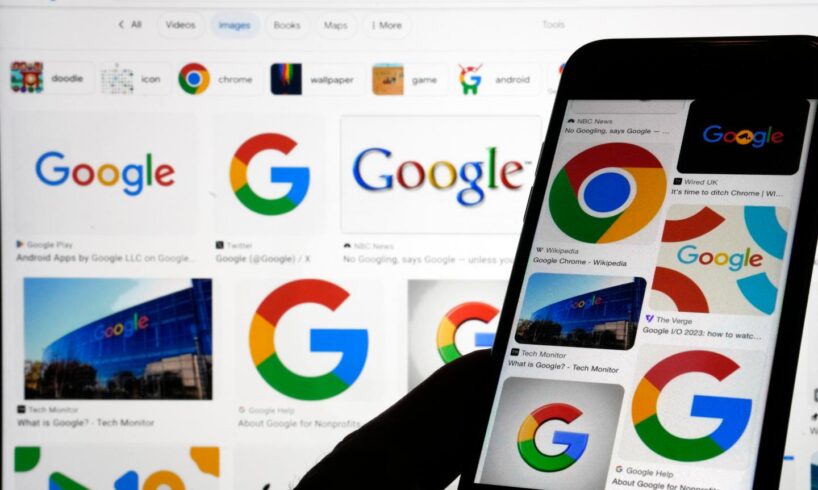
Various Google logos are displayed on a Google search, Monday, September 11, 2023, in New York. RICHARD DREW / AP
A US judge on Tuesday, September 2, rejected the government’s demand that Google sell its Chrome web browser as part of a major antitrust case but imposed sweeping requirements to restore competition in online search.
The landmark ruling came after Judge Amit Mehta found in August 2024 that Google illegally maintained monopolies in online search through exclusive distribution agreements worth billions of dollars annually.
Judge Mehta’s decision in the Google case represents one of the most significant rulings against corporate monopoly practices in two decades, and could have fundamentally reshaped the tech giant’s future.
The US government pushed for Chrome’s divestment, contending that the browser serves as a crucial gateway to internet activity and facilitates a third of all Google web searches.
But in his ruling, Mehta warned that a Chrome divestiture “would be incredibly messy and highly risky” and said US government lawyers had overreached in making that request.
Read more Subscribers only Google under pressure from threat of being broken up
‘Substantial harms to distribution partners and consumers’
The case primarily focused on Google’s expensive distribution agreements with Apple, Samsung and other smartphone manufacturers that established Google as the default search engine on iPhones and other devices. Under this arrangement, Google pays Apple tens of billions of dollars annually for prime placement on the iPhone.
In his decision last year, Judge Mehta concluded that Google’s default status on the iPhone allowed the company to evolve into an internet powerhouse, insulated from competitive threats. But Mehta on Tuesday said an outright ban of these deals was off the table, insisting that such a ban could have too profound an effect on other businesses.
Subscription
€2.49€/month for the first year
Get unlimited access to Le Monde in English articles.
Find out more
New
Le Monde’s app
Get the most out of your experience: download the app to enjoy Le Monde in English anywhere, anytime
Download
Help us improve Le Monde in English
Dear reader,
We’d love to hear your thoughts on Le Monde in English! Take this quick survey to help us improve it for you.
Take the survey
“Cutting off payments from Google almost certainly will impose substantial − in some cases, crippling − downstream harms to distribution partners, related markets, and consumers,” the ruling said.
Restore competition in online search
Instead, under his order, Google must make available to “qualified competitors” search index data and user interaction information that rivals can use to improve their services. The company must also offer search result syndication services to competitors for up to five years.
The ruling also specifically addresses the emerging threat from generative artificial intelligence chatbots like ChatGPT, extending restrictions to prevent Google from using exclusive deals to dominate the AI space as it did with traditional search.
A technical committee will oversee implementation of the remedies, which take effect 60 days after the final judgment is entered.
The parties have until September 10 to submit a revised final judgment consistent with the court’s ruling.
Google faces another legal case, awaiting a federal court decision in Virginia regarding its web display advertising technology business.
A separate judge ruled earlier this year that Google’s ad tech operations also constitute an illegal monopoly that stifles competition.
These cases are part of a broader government and bipartisan offensive against Big Tech. The US currently has five pending antitrust cases against major technology companies.





